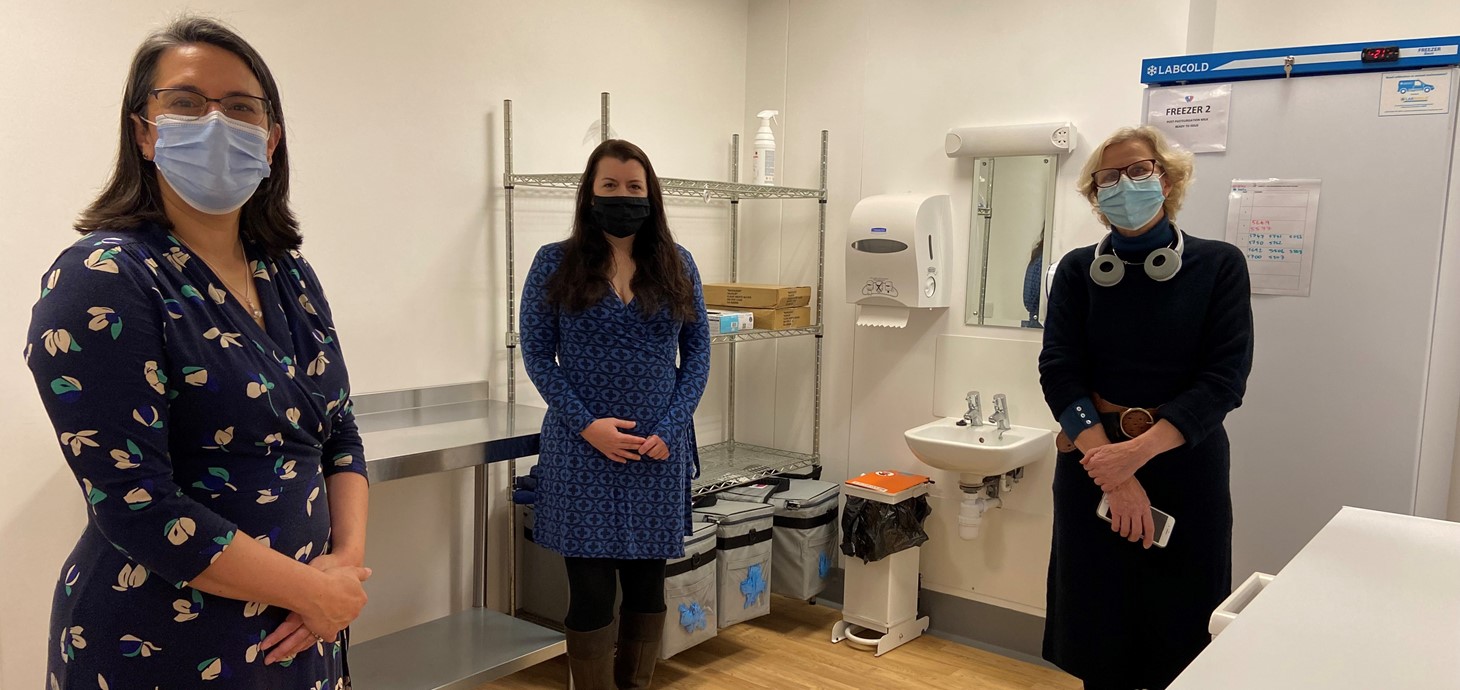
Swansea University and Swansea Bay University Health Board have launched a new partnership with the Human Milk Foundation (HMF) that will see a donor milk bank hub in Wales for the first time.
The hub, located in Swansea’s Singleton hospital will allow more sick and premature babies in the region to receive donor milk which has first been pasteurised and enable local women to donate their milk – many of whom have not been able to do so previously due to logistics around transporting their milk to banks in England.
When babies are born sick or too early, receiving their own mother’s milk helps protect them against potentially life-threatening infections and supports their growth and development. However sometimes their own mother may be unable to provide enough milk for health reasons or because she is struggling to make enough milk right away.
This is where donor milk comes in. Other mothers who are breastfeeding and have more milk than their own baby needs donate it to a milk bank after careful screening, including blood tests for infections. At the milk bank donated milk is specially heat-treated to make sure it is safe for the most vulnerable babies. Milk banks then freeze the milk and send it to hospitals where it can be used in neonatal intensive care units to support babies.
Wales is the only country in the UK not to have its own milk bank. This has meant that milk needed to be transported in small quantities from England and many Welsh mothers, particularly in south and west Wales, have been unable to donate to support other families. Mothers who donate their milk find it a valuable experience, especially if their own baby once received donor milk.
The Swansea Hub will allow milk to be processed at the Hearts Milk Bank, part of the HMF, situated just north of London. Established in 2017, Hearts is now the largest non-profit human milk bank in the country, supporting over 40 NHS hospitals and hundreds of families each year. Screened donor human milk will then be transported back to Wales, where it will be available for local hospitals to use. It will also support local mothers to donate their milk, where it can be stored locally before transport to Hearts.
Professor Amy Brown, director for the centre of Lactation, Infant Feeding and Translation (LIFT) at Swansea University said: "We were delighted to recently receive funding from HEFCW to build the work of LIFT, part of which enabled us to establish the milk bank hub. We are looking forward to working with the HMF and the health board to enable more families to receive and donate human milk and to growing the hub and its reach in the coming years."
Dr Natalie Shenker of the HMF said: "Everyone at the HMF is committed to building a truly equitable service, where families can donate and access donor human milk, free at the point of need, wherever they live. By investing in the Hub and the research evaluation of its impact, HEFCW are enabling the start of a truly exciting innovation in perinatal health for women across Wales and beyond."
Dr Sujoy Banerjee, Clinical Lead for newborn services at Swansea Bay Health Board said: "The first human milk bank in Wales will be invaluable for the care of premature and sick newborn babies, preventing complications, and improving outcomes. It will provide equity and easy access of human milk for clinical services in Wales and will make it easier for lactating mothers to donate their excess milk for the benefit of many babies. The project is a great example of a social collaborative and will raise awareness and promote breast feeding in our communities. We are very proud to be given the opportunity to host this initiative."
To find out more about the project and research and innovation around infant feeding and donor human milk you can visit the LIFT website.
To find out more about the work of the Human Milk Foundation visit their website here.
